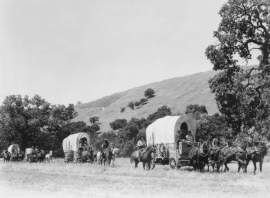
Articles of Confederation and Its Inherent Weakness

Popular In Constitution
Purpose Of Lifetime Appointment And Pros And Cons Enumerated Powers Bicameral Legislature Background Article 3 Of The Constitution We The People 1st Amendment Who Wrote The Constitution Judicial Review Equal Protection Clause 5th Amendment 10th Amendment Three Fifths Compromise
Prior to the final draft of the Articles of Confederation, John Dickinson, the head of the drafting committee of the Articles of Confederation expressed his concern about the lack of power attributed to a central government in the post-Revolutionary War establishment of gubernatorial doctrines. Initially refusing to sign even the Declaration of Independence, as a result of the lack of presence it allowed to central government, Dickinson had hoped to solidify a stable yet democratic governmental presence.
However, the citizens and leaders of the new United States of America were overcome by their apprehension to allow any newly-formed centralized government the same power that the British monarchy had possessed. As a result, the Articles of Confederation manifested itself as extremist legislation considered by Alexander Hamilton and James Madison - the authors of The Federalist Papers and advocates of the Constitution - to be an unstable schematic devoid of governmental structure. Hamilton was adamant in his concern that the Articles of Confederation lacked a substantial gubernatorial presence, and therefore, paradoxically lacked a means to enforce the laws set forth in the doctrine itself.
The Articles of Confederation was considered by Federalists to be a reactionary piece of legislation, founded impulsively rather than logically. Though the monarchy under George II proved to be antithetical to liberty and democracy, Hamilton maintained that combating one extreme with another - in this case, independent sovereignty in the place of monarchy - was a careless diagnosis. Hamilton continued to express his concerns with the lack of governmental presence, constructing The Federalist Papers in hopes of alleviating the dysfunction created by The Articles of Confederation.
Though the individual states enjoyed their respective sovereignty as a result of the implementation of the Articles of Confederation, matters arose in which they had no choice but to seek out consultation with the existing, albeit weak, central government. For instance, many State borders were indistinguishable, and as result of each State existing as a sovereign entity, they were powerless over one another. In addition, the states that bordered on the then-uncharted western territories wanted to extend their borders, while the states that were landlocked were against the notion and requested that the profits earned as a result of expansion were to be shared equally amongst nation. As a result, the role of the central government became more akin to ‘pro re nata’, rather than maintain a definitive role.
Though the central government retained the ability to settle disputes between individual states, both states involved in the dispute had to agree to rely on the decision-making authority. If one of the states refused, then the central government was unable to get involved in a potential settlement.
An additional flaw found in the Articles of Confederation was considered to be the inability of the central government to levy taxes from the individual, then sovereign, states. Though the centralized government retained the right to request suggested donations from the states themselves, it had no legal ability to enforce the refusal of payment. As a result, the central government became financially insoluble. The Federalists reasoned that the innate causality for the creation of the Articles of Confederation were fundamentally flawed.
NEXT: Signers of the Declaration of Independence





















